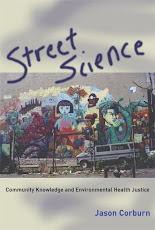The summit on the Millennium Development Goals last week at the UN highlighted that the indicators are mixed bag of failure and success...even with 5 years to go. Failure because they tend, among other things, to measure national progress which can mask within country inequalities and few countries in the global south have systems in place to report on the measures. Yet, the mere existence of the MDGs provides a space for discourse about development and ways to make the world more equal...even if the measures alone, if reached, won't get us there. A new blog on the Guardian's web site is one of the best I've seen on these issues. Madeleine Bunting, a contributor to the Guardian, has an especially interesting post on why equality, not just measures of development "progress," are not a major priority of the UN, but should be.
Sunday, September 26, 2010
Boston Health Commission: Where you live matters for health equity
Following the work of other local health departments, such as Alameda County in the San Francisco Bay Area, the Boston Public Health Commission has launched a program to address health disparities in the city's neighborhoods. A fancy web site, http://whatsyourhealthcode.com/, emphasizes that PLACE MATTERS for health. Unfortunately, only $150,000 is dedicated to this campaign and most of the "Take Action" suggestions do not give the reader any clues about how local, state and federal policies are largely to blame for health inequities and that new policies are needed to reverse these inequities. The Boston Public Health Commission's Center for Health Equity and Social Justice does have some more direct information and action items, including some excellent presentations on the relationships between structural racism and health. Planners and others can build all the community gardens, parks, sidewalks and bike lanes they want, but until we start getting serious about reversing the connections between racism, place and health, those built-environment strategies alone are not going to move society toward more healthy and equitable cities.
Making Environmental Justice a priority...again
The Obama administration finally got around to convening the Interagency Working Group on Environmental Justice. This group, established in 1994, had not met for almost a decade. A Federal Advisory Committee, this group was a very important forum for EJ activists and others to gain the attention of federal decision makers. I remember attending one meeting of the IWGEJ where residents from Mossville, Louisiana, made their case about dioxins and other chemicals in the air and water and related health issues facing their community and the adjacent chemical plants. The EPA and other federal agencies were forced to respond and are continuing to address EJ concerns in Mossville. This forum was also supposed to hold EPA and all agencies accountable to their mandate to develop policies and strategies for incorporating EJ analysis into agency decision-making. Hopefully this meeting will show some real leadership to follow-through on the EPA's own Inspector General report from 2006, that revealed few if any EPA senior managers were directing their staff to conduct EJ reviews of federal policies, programs or projects. Implementing this step alone could have a significant and lasting positive impact on urban health inequities in communities across the country.
Subscribe to:
Comments (Atom)








